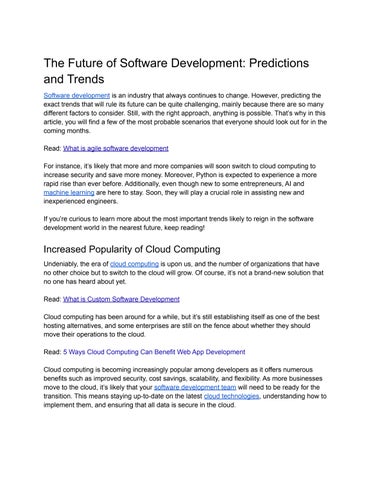Cash-out refinancing can be a tempting option for homeowners looking to access the equity in their homes for various financial needs. While it can provide immediate cash for renovations, debt consolidation, or other large expenses, it is essential to carefully consider the long-term consequences of this decision. In this article, we will explore the benefits and risks of cash-out refinancing, as well as strategies for borrowers to balance short-term gains with long-term financial stability. From understanding the potential impact on interest rates to evaluating alternatives to tapping into home equity, this article will provide valuable insights for homeowners navigating the complexities of cash-out refinancing.
Understanding Cash-Out Refinancing
Cash-out refinancing is a financial strategy that allows homeowners to access the equity in their homes by refinancing their mortgage for a larger amount than what is currently owed. The difference between the new loan amount and the existing mortgage balance is received in cash. This cash can be used for various purposes, such as home renovations, debt consolidation, or other expenses.
How Cash-Out Refinancing Works
- A homeowner applies for a cash-out refinance with a lender, typically going through a similar process as obtaining a traditional mortgage.
- The new loan amount is based on the current appraised value of the home and the homeowner’s creditworthiness.
- Once approved, the existing mortgage is paid off, and the homeowner receives the difference in a lump sum of cash.
- The new mortgage terms, including interest rate, repayment period, and monthly payments, will be based on the updated loan amount.
Benefits of Cash-Out Refinancing
- Access to cash: Homeowners can access the equity in their homes to fund major expenses or investments.
- Potentially lower interest rates: If interest rates have decreased since the original mortgage was taken out, homeowners may be able to secure a lower rate with a cash-out refinance.
- Potential tax benefits: The interest paid on the cash-out refinance may be tax-deductible, depending on the intended use of the funds.
Risks and Considerations
- Increased debt: By borrowing against the equity in their home, homeowners are taking on additional debt that must be repaid.
- Long-term costs: Extending the repayment period or increasing the loan amount can result in paying more interest over the life of the loan.
- Risk of foreclosure: If homeowners are unable to make the new, higher mortgage payments, they could face the risk of losing their home through foreclosure.
Overall, while cash-out refinancing can provide short-term financial benefits, it is important for homeowners to carefully consider the long-term consequences and ensure they can afford the new loan terms.
Short-Term Financial Gains
Cash-out refinancing can offer several short-term financial gains for homeowners. Some of the key benefits include:
-
Access to Cash: One of the primary advantages of cash-out refinancing is that it provides homeowners with access to a lump sum of cash. This can be especially beneficial for individuals who need funds for immediate expenses, such as home repairs, paying off high-interest debt, or funding a major purchase.
-
Lower Interest Rates: If a homeowner is able to secure a new mortgage with a lower interest rate through cash-out refinancing, they may end up with lower monthly mortgage payments. This can free up additional cash flow in the short term, providing more flexibility in managing day-to-day expenses.
-
Consolidation of Debt: By using cash-out refinancing to pay off higher-interest debt, such as credit card balances or personal loans, homeowners can consolidate their debt into a single, more manageable monthly payment. This can reduce financial stress and make it easier to stay on top of payments.
-
Tax Deductibility: Mortgage interest is typically tax-deductible, which means that homeowners who use cash-out refinancing to pay off non-deductible debt can potentially save money on their taxes. This can result in additional short-term savings for those who itemize deductions on their tax returns.
-
Home Improvement Projects: Cash-out refinancing can be a cost-effective way to fund home improvement projects that can increase the value of a property. This can lead to a quick increase in the home’s equity, providing short-term gains for homeowners who may be looking to sell in the near future.
Overall, while cash-out refinancing can provide homeowners with immediate financial benefits, it is crucial to carefully consider the long-term consequences before proceeding. By weighing the short-term gains against the potential risks, homeowners can make a more informed decision about whether cash-out refinancing is the right financial move for their individual circumstances.
Long-Term Financial Consequences
-
Increased Interest Costs: One significant long-term consequence of cash-out refinancing is the potential increase in total interest costs over the life of the loan. By extending the repayment term or obtaining a new mortgage with a higher interest rate, borrowers may end up paying more in interest over the long run.
-
Resetting the Clock on Loan Repayment: When refinancing with a new mortgage, borrowers often reset the clock on their loan repayment schedule. This means that even if they lower their monthly payments initially, they may end up paying off their loan over a longer period, ultimately resulting in higher total interest costs.
-
Reduced Home Equity: By taking out cash from your home’s equity through a cash-out refinance, you are effectively reducing the amount of equity you have in your home. This can be a risky move, particularly if property values decrease or you face financial difficulties in the future. It may limit your ability to access additional financing options or benefit from future appreciation in your home’s value.
-
Potential for Foreclosure: If you fail to make timely payments on your refinanced mortgage, there is a risk of losing your home through foreclosure. By leveraging your home’s equity for cash, you are increasing the stakes and putting your home at risk if you encounter financial hardship down the line.
-
Impact on Credit Score: Missing payments or defaulting on a refinanced mortgage can have a significant negative impact on your credit score. This, in turn, can affect your ability to secure favorable terms on future loans or credit cards, leading to more financial challenges in the long term.
-
Less Flexibility in Financial Planning: Committing to a new, potentially larger mortgage through cash-out refinancing can limit your financial flexibility in the long term. You may find yourself constrained by higher monthly payments, reduced home equity, and limited options for future financial decision-making.
Evaluating the Risks and Benefits
When considering cash-out refinancing, it is crucial to weigh the risks and benefits associated with this financial decision. Below are some key points to consider when evaluating the risks and benefits of cash-out refinancing:
Benefits:
- Access to Cash: Cash-out refinancing allows homeowners to access a portion of their home equity in the form of cash, which can be used for various purposes such as home improvements, debt consolidation, or other financial needs.
- Lower Interest Rates: By refinancing at a lower interest rate than their current mortgage, homeowners can potentially save money on interest payments over the life of the loan.
- Tax Deductible Interest: In some cases, the interest paid on a cash-out refinance may be tax deductible, providing potential tax benefits to homeowners.
- Consolidate Debt: Cash-out refinancing can provide an opportunity to consolidate high-interest debts into a single, lower-interest mortgage payment, potentially saving money in the long run.
Risks:
- Increased Debt: By taking out cash from their home equity, homeowners are essentially increasing their overall debt burden, which could lead to financial strain if not managed properly.
- Resetting Loan Term: Refinancing to take out cash may result in extending the loan term, potentially increasing the total amount of interest paid over the life of the loan.
- Risk of Foreclosure: Using home equity to access cash carries the risk of foreclosure if homeowners are unable to meet their new, higher mortgage payments.
- Higher Closing Costs: Refinancing typically involves closing costs such as appraisal fees, origination fees, and other expenses, which can eat into the potential savings from a cash-out refinance.
By carefully evaluating these risks and benefits, homeowners can make an informed decision about whether cash-out refinancing is the right choice for their financial situation. It is essential to consider both the short-term gains and long-term consequences of this financial strategy before proceeding.
Impact on Home Equity
- Cash-out refinancing can affect the overall equity in your home by either increasing or decreasing it, depending on how the funds are used and the terms of the new loan.
- When you take out a cash-out refinance, you are essentially borrowing against the equity you have built up in your home.
- If you use the funds from the refinance to make home improvements or investments that increase the value of your property, you may actually be contributing to the growth of your home equity.
- However, if the funds are used for non-appreciating purchases or to pay off consumer debt, it could result in a decrease in your home equity.
- It is essential to carefully evaluate how you plan to use the money from a cash-out refinance to ensure that it aligns with your long-term financial goals and helps to strengthen rather than weaken your overall financial position.
Examples of Impact on Home Equity
-
Positive Impact:
- Using the funds to renovate your kitchen or bathrooms, which can increase the value of your home.
- Investing in energy-efficient upgrades that can lower your utility bills and improve the resale value of your property.
-
Negative Impact:
- Using the funds for vacations or luxury purchases, which do not add to the value of your home.
- Paying off high-interest credit card debt without changing spending habits, leading to a potential cycle of debt accumulation.
Maintaining a Healthy Home Equity Balance
- Monitoring your home’s value and equity regularly to ensure that your financial decisions align with your goals.
- Consulting with a financial advisor or real estate professional to understand the long-term implications of a cash-out refinance on your home equity.
- Considering alternative options, such as a home equity line of credit (HELOC) or personal loan, if a cash-out refinance would put your home equity at risk.
Impact on Interest Rates
-
Short-Term Impact: Initially, when an individual opts for cash-out refinancing, they may notice a slight decrease in their interest rates. This can be appealing as it offers immediate savings on monthly payments, providing a short-term financial advantage.
-
Long-Term Impact: However, in the long run, the interest rates might increase due to various factors. With cash-out refinancing, your loan amount increases, and if interest rates rise in the future, you may end up paying more in interest over the life of the loan.
-
Market Conditions: External factors like overall economic health, inflation rates, and government policies greatly influence interest rates. If market conditions later necessitate a rise in interest rates, this can substantially affect the benefits gained through cash-out refinancing.
-
Credit Score: One’s credit score plays a crucial role in determining the interest rate offered by lenders. If your credit score is lower at the time of refinancing, you may end up with a higher interest rate, offsetting potential savings from cash-out refinancing.
-
Loan Term: The length of the loan term chosen during refinancing can impact interest rates. Shorter loan terms typically come with lower interest rates, but this also means higher monthly payments. Longer loan terms may have higher interest rates, leading to increased interest payments over time.
-
Risk Assessment: Lenders consider the risk associated with cash-out refinancing. If the lender perceives it as a higher risk due to factors like credit history, loan-to-value ratio, or debt-to-income ratio, they may offer less favorable interest rates.
-
Adjustable vs. Fixed Rates: When opting for cash-out refinancing, borrowers must decide between adjustable and fixed interest rates. While adjustable rates may offer lower initial rates, they can fluctuate with market changes, potentially leading to higher rates in the future.
Ultimately, the impact on interest rates when considering cash-out refinancing requires a careful evaluation of both short-term gains and long-term consequences to make an informed decision that aligns with your financial goals.
Alternative Financial Strategies
When considering cash-out refinancing, borrowers may want to explore alternative financial strategies to balance short-term gains with long-term consequences. Some alternative strategies to consider include:
-
Home Equity Line of Credit (HELOC): A HELOC allows homeowners to borrow against the equity in their home as needed, similar to a credit card. This option provides flexibility in accessing funds without refinancing the entire mortgage.
-
Personal Loan: Taking out a personal loan can be an alternative to cash-out refinancing, especially for smaller amounts needed for short-term expenses. Personal loans typically have higher interest rates than mortgages but may be a more suitable option for some borrowers.
-
Home Equity Loan: A home equity loan is another way to tap into the equity in your home without refinancing. It involves borrowing a lump sum at a fixed interest rate, which may be advantageous if you prefer predictability in your payments.
-
Cash-Out Refinance with a Shorter Term: If you’re concerned about the long-term consequences of extending your mortgage term through cash-out refinancing, you may consider refinancing into a shorter term to balance short-term gains with long-term benefits. While this may result in higher monthly payments, it could save you interest over the life of the loan.
-
Financial Counseling: Seeking advice from a financial counselor or advisor can help you navigate the pros and cons of cash-out refinancing and explore alternative strategies that align with your financial goals. They can provide personalized guidance based on your current financial situation and long-term objectives.
-
Debt Consolidation: If you’re considering cash-out refinancing to consolidate debt, explore other debt consolidation options such as balance transfer credit cards or debt consolidation loans. It’s essential to compare interest rates and fees to determine the most cost-effective approach.
Before deciding on cash-out refinancing or alternative financial strategies, carefully weigh the short-term gains against the long-term consequences. Each option has its advantages and drawbacks, so consider seeking professional advice to make an informed decision.
Seeking Professional Advice
When considering cash-out refinancing and its potential impacts on your financial future, seeking professional advice is crucial. Here’s why:
Importance of Professional Advice:
-
Expertise: Financial advisors, mortgage brokers, and real estate professionals have the expertise and knowledge to guide you through the complexities of cash-out refinancing.
-
Personalized Guidance: Professionals can assess your unique financial situation, goals, and risk tolerance to provide personalized advice tailored to your needs.
-
Long-Term Perspective: Professionals can help you evaluate the long-term consequences of cash-out refinancing, ensuring that you make an informed decision that aligns with your overall financial objectives.
What to Discuss with a Professional:
-
Short-Term Vs. Long-Term Gains: A professional can help you weigh the potential short-term benefits of accessing cash through refinancing against the long-term implications, such as increased debt and interest payments.
-
Financial Goals: By discussing your financial goals with a professional, you can determine if cash-out refinancing aligns with your objectives, whether it’s funding a major expense, consolidating debt, or investing in property renovations.
-
Risk Assessment: Professionals can help you assess the risks associated with cash-out refinancing, such as the impact on your credit score, the risk of foreclosure if you default on payments, and the potential fluctuations in property values.
How to Find a Professional:
-
Referrals: Ask friends, family, or colleagues for recommendations of trustworthy financial advisors or mortgage brokers they have worked with in the past.
-
Online Resources: Use reputable online platforms to search for certified financial advisors or mortgage professionals with positive reviews and relevant experience in cash-out refinancing.
-
Interviews: Schedule consultations with multiple professionals to discuss your needs, evaluate their expertise, and determine if they are the right fit to help you navigate the complexities of cash-out refinancing.
By seeking professional advice, you can ensure that you make an informed decision regarding cash-out refinancing that balances short-term gains with long-term consequences, setting you on the path towards achieving your financial goals.
Conclusion
In conclusion, cash-out refinancing can offer short-term financial gains by allowing homeowners to access their home equity. However, it is important to carefully consider the long-term financial consequences, such as increased debt and potential risks to home equity. Evaluating the risks and benefits of cash-out refinancing, as well as considering alternative financial strategies, is crucial in making an informed decision. Seeking professional advice from mortgage experts can help homeowners navigate the complexities of cash-out refinancing and ensure they are making the best choice for their financial future. By balancing short-term gains with long-term consequences, homeowners can make a more educated decision about whether cash-out refinancing is the right option for their financial goals.

Director @Anyalpha, a Top Software Development Company offering Mobile App Development and Website Development Services to Businesses & Startups.



